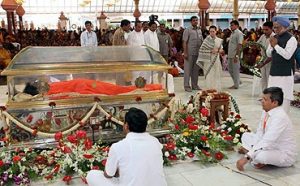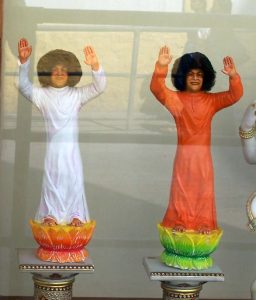
It behooves all who come to take care of the belly or delhi belly will ensue. During a short bout of “delhi belly” we are taken via the gamut of Sai’s teachings on what it means to be a devotee, and what it means to love, and to be taken up into the Ocean of Love, the Ocean of Sai. Coconut water and Curd rice are the recommended dietary course during a bout of “delhi belly”.
![]()












